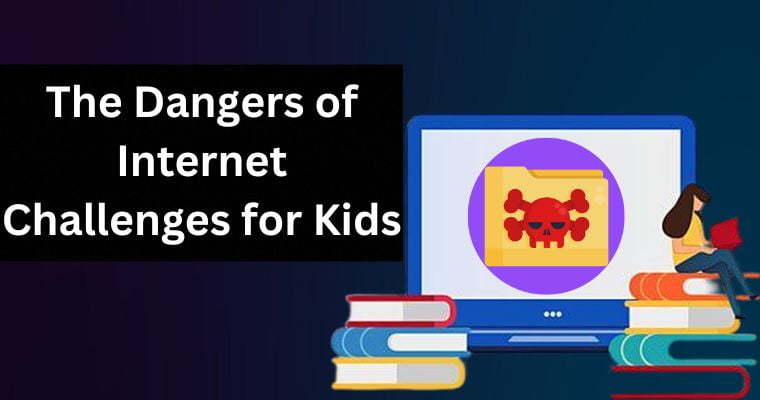Social media is one of the young demographic’s favorite pastimes. On second thought, perhaps it is number one, because, on average, kids and teens spend up to half of an entire day posting pictures, and videos and communicating on social media. Then again, we adults are also guilty of it!
Meanwhile, one of the most popular trends on social media is ‘challenges.’ This fairly new phenomenon has kids and teens competing to see who can finish a challenge such as a dance move, or a certain type of behavior.
Over the years, particularly on the ‘challenge’ giant TikTok, these activities have come out of hand and the company is not doing much to stop the harmful side effects of these activities on younger people.
For these reasons, internet challenges are a dangerous arena when it comes to mental health, and even physical health. Kids from all across the world take part in online challenges. Some do it to impress their pals, while others do it to go viral.
Young people frequently record their antics on camera and upload them to social media sites, particularly Tiktok simply because it allows for instant sharing of short-form videos that allow users to use effects and filters.
While some tasks are simple and enjoyable, others have a harsh and perilous edge. For many parents, the world of risky internet challenges may be terrifying and confusing.
From eating nutmeg to gluing your lips together, and from pouring ice and salt into your skin. It gets worse, some recent challenges had users ingesting laundry detergent pods!
What Is a Challenge?
A typical online challenge is someone performing an activity while being filmed, sharing the video on social media, and challenging others to follow suit.
Usually, there is a fun, impulsive, or dangerous component. Several of these problems have recently spread like wildfire through social media, affecting millions of people.
Successfully flipping a bottle or consuming extremely spicy chili peppers are just some examples. The popularity of these challenges is significantly influenced by what is trendy in popular culture.
Even news outlets will occasionally cover challenges, and occasionally celebrities or politicians will take part in them, too, adding fuel to the fire.
Kids and teens are exposed to fresh content every day because of the influencer culture that is expanding on Instagram and YouTube. Some younger folks are also making significant monetary gains doing this, particularly on TikTok.
As such, it might be challenging for parents to follow the latest trends from day to day, while some will encourage money-making.
Yes, online challenges are often innocuous, humorous, and enjoyable. For instance, one of the primary draws of TikTok is the difficulty of recreating well-known dances. However, we must think about the various dangers involved to make TikTok a safer place to be.
What Are the Dangers?
As a parent, it’s crucial to understand that some of these trends might still be dangerous for kids to engage in. They struggle to control the effects of their actions, are more vulnerable to social pressure, and have more robust emotional responses to difficulties.
As a result, young individuals who seek to fulfill an internet challenge may even suffer severe injuries or even pass tragically.
Parents and teachers could be quick to worry given the risks associated with some online tasks. One simple online search may turn up a wide variety of unsettling news stories and first-hand testimonies from people who have personally experienced the risks associated with using the internet and forcing bizarre internet challenges.
Unfortunately, kids and teens don’t want to miss out, while at their age they like to get adrenaline and social recognition going.
While many fun challenges are harmless out there, such as ‘mannequin’, ‘bottle flip’, ‘whisper’ and dance-related or humor-related challenges (or music), here are some you should pay attention to as a parent, caregiver, or friend;
- The extremely unhygienic and potentially dangerous coronavirus challenge, which involves licking things in public
- The gallon challenge which involves imbibing a large quantity of liquid
- The slime challenge where ingesting slime (Sodium Tetraborate) is the name of the game
- Celebrity lip challenges which involve vacuuming one’s lips that can lead to injury
- The backpack challenge involves hitting someone with a backpack
- The deodorant challenge can result in burns
- The disappearing-for-48-hours challenge, which is self-explanatory
- The black-out challenge that involves cutting off one’s oxygen supply
- The medicine intake challenge
- The milk crate challenge
- The Cha Cha Slide Challenge
- The skull breaker challenge
- The fire challenge
The list is almost endless, and users keep coming up with more and more extreme challenges to one-up others. It is a bad idea to encourage this in the first place!
As you can see, many of these challenges are, to put it mildly, idiotic and legitimately dangerous. What you can do as a caregiver is help them recognize these dangers and inform them of all of the risks that executing extreme internet challenges can involve.
It is important you act like a role model for your teen or kid, showing them different ways of having fun. Explain to them that kids have gotten hurt doing challenges and that it is not a ‘cool’ thing to do when a challenge involves physical pain, or physical or mental risks.
TikTok Must Take Responsibility or Be Gone
At the end of the day, TikTok is responsible for allowing these challenges to take place on its platform. Though the company has done some work to expand its policies against dangerous challenges, It is not enough to react after something bad happens.
Social media companies need to sit down and figure out a proactive way of never letting things go South in the first place, especially where young people are concerned.
As a result, several U.S. states are for the complete ban of TikTok, while the EU is in a similar position. There has not been such a wide-ranging ban on an app in history, which goes to show that perhaps we should all forget about TikTok and move on to bigger and better things!



